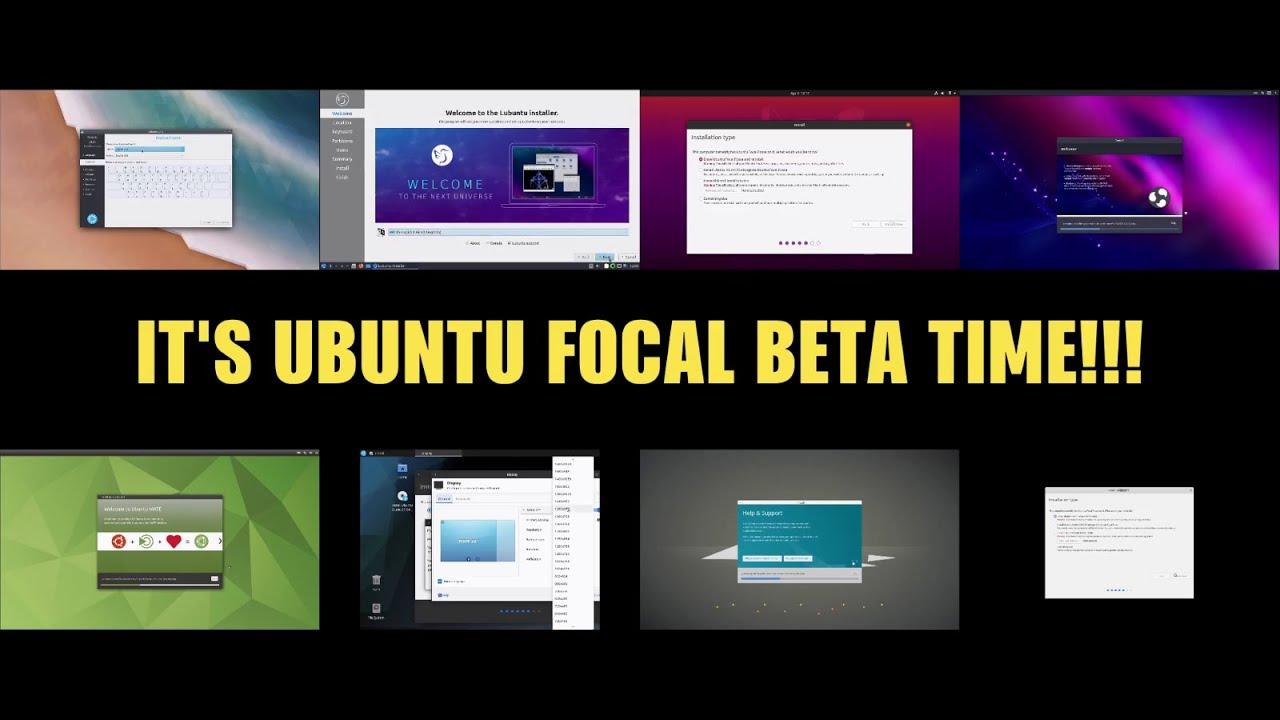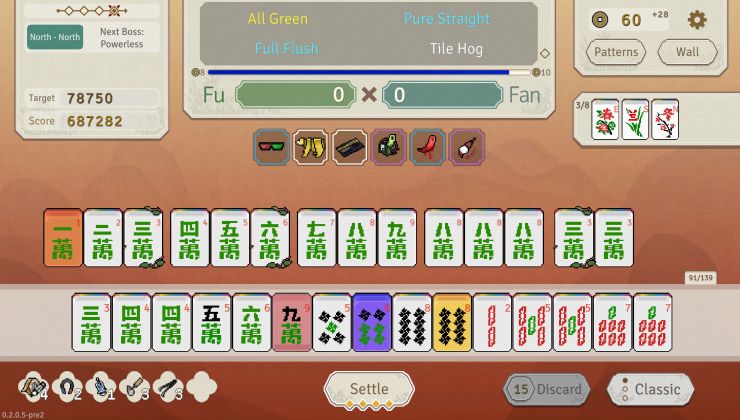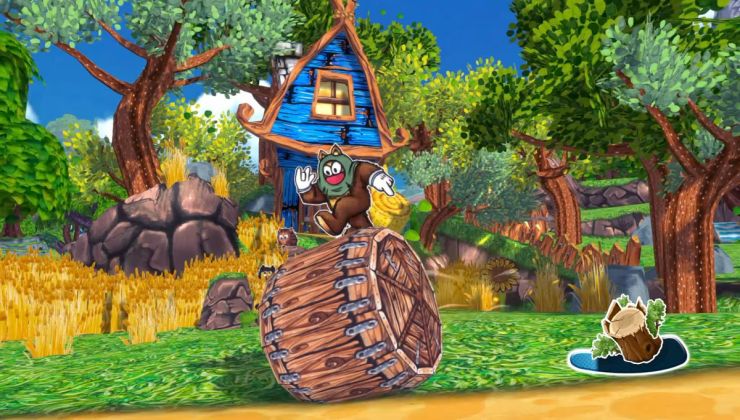Ah Ubuntu, it's like a warm cuddly blanket or a favourite jumper. There's others in your wardrobe but nothing is quite like the comfy and safe feel of it. A major new version is approaching with Ubuntu 20.04 which is a "Long Term Support" release.
Ubuntu 20.04 and all the flavours like Ubuntu MATE, Kubuntu, Budgie and so on have all hit the Beta stage so they're ready for some wider testing and reporting. It's also now Ubuntu Testing Week which runs until April 8, which all the effort now focused on ISO testing, bug reporting, and of course fixing bugs.
Have a quick listen to Canonical staffer Alan Pope talking briefly about it:

Direct Link
Some of the big features landing in Ubuntu 20.04 (and other versions):
- A theme refresh (with a light/dark switcher).
- GNOME 3.36 / MATE Desktop 1.24 / Plasma 5.18
- Mesa 20.0 open source graphics.
- Firefox 74.0.
- ZFS storage upgrades
- Thunderbird 68.6.0.
- LibreOffice 6.4.
- Snap Store replaces the Ubuntu Store.
- And the usual assortment of toolchain updates including glibc 2.31, OpenJDK 11, rustc 1.41, GCC 9.3, Python 3.8.2, ruby 2.7.0, php 7.4, perl 5.30, golang 1.13 and plenty more upgrades.
One of the huge changes for NVIDIA users are the inclusion of drivers on the ISO downloads. This means you can select to install them together with the system, to get a fully ready to go install of Ubuntu. Additionally, Canonical will now be providing NVIDIA driver updates in the repository removing the need for a messy PPA setup. For Linux gamers, it's a big win.
If you want more information on how to get involved in testing, take a look over on this forum post. You can also find the official Beta release announcement here.
The full release of Ubuntu 20.04 is scheduled for April 23 with main support lasting for at least 5 years.
Then they kept determining to be 'unique' in the huge Linux landscape, and pushing technologies that no one else supported, so they didn't get that much support, as Canonical is not that big.. Snap is one of those things, and it's direct competition with flatpak, which a lot of distributions/software has adopted, is what rubs me raw about it at this point.
Some of the stuff Canonical does is / was better than what its competitors are / were doing... Unity for example, was far better than the garbage that is GNOME 3.x. And Snap is theoretically superior to Flatpak in various ways, though Flatpak is more "open", which is an especially big selling point in the Linux Community. Yet another example would be "Mir", which as I understand it is theoretically superior to Wayland, though again, the latter would be considered more "open".
My point was that Canonical wanted their own so started Snap, instead of working with everyone else and supporting flatpak.
Your comments imply everyone supports Flatpak, which is not the case. And there are numerous "key" distros that have no support for Flatpak "out of the box" - some of those distros support Snap "out of the box", others support neither packaging format "out of the box".
Canonical is not the only one that uses "bully boy" tactics to push their agenda - The GNOME Project is notorious for this (though they are not the only ones), which is part of the reason why distros will sometimes package inferior GNOME programs by default, ahead of superior alternatives.
You can call out Canonical for being a bully - but not at the expense of pretending they're the only ones that do this...
My point was that Canonical wanted their own so started Snap, instead of working with everyone else and supporting flatpak.
You know snaps came first, right? The failed internal Ubuntu project was Ubuntu Phone. Unity, Mir and snaps were all created for that.
This.
And whilst most of the stuff Canonical were pushing has since been abandoned in part or in full, the "end goal" for many of these various projects was far more grand than what most of Canonical's competitors are or were planning... Sadly, most of Canonical's projects never came close to the desired "end goal".
Last edited by Cyba.Cowboy on 6 Apr 2020 at 5:22 am UTC
Some of the stuff Canonical does is / was better than what its competitors are / were doing... Unity for example, was far better than the garbage that is GNOME 3.x. And Snap is theoretically superior to Flatpak in various ways, though Flatpak is more "open", which is an especially big selling point in the Linux Community. Yet another example would be "Mir", which as I understand it is theoretically superior to Wayland, though again, the latter would be considered more "open".As I understand it, HURD is theoretically superior to Linux. Not sure how far those theoreticals get anyone.
Wait, what? They switched back to Gnome because they don't have the man power to work on Unity, which is just a gnome hack.
No its not. Unless we have quite different ideas what a "hack" is.
As far as everything I saw of it, they basically took gtk3 / gnome-shell and tweaked some things on it, made compoz sort of work with it and called it Unity. I never used it much because I hate having the dock take desktop space.Wait, what? They switched back to Gnome because they don't have the man power to work on Unity, which is just a gnome hack.
No its not. Unless we have quite different ideas what a "hack" is.
There is a difference between a software project making UI decisions vs a Distribution pushing things. Unity has always been more garbage than Gnome everytime I attempted to use it. The truth of the matter is, both Gnome-Shell and KDE plasma should have been cooked a bit more before distributions started shipping with them. This hatred toward either was based on the few years where they were terrible to use. Now both are very nice, and Ubuntu wisened up and stopped taking the gnome libraries and making Unity.Then they kept determining to be 'unique' in the huge Linux landscape, and pushing technologies that no one else supported, so they didn't get that much support, as Canonical is not that big.. Snap is one of those things, and it's direct competition with flatpak, which a lot of distributions/software has adopted, is what rubs me raw about it at this point.
Some of the stuff Canonical does is / was better than what its competitors are / were doing... Unity for example, was far better than the garbage that is GNOME 3.x. And Snap is theoretically superior to Flatpak in various ways, though Flatpak is more "open", which is an especially big selling point in the Linux Community. Yet another example would be "Mir", which as I understand it is theoretically superior to Wayland, though again, the latter would be considered more "open".
My point was that Canonical wanted their own so started Snap, instead of working with everyone else and supporting flatpak.
Your comments imply everyone supports Flatpak, which is not the case. And there are numerous "key" distros that have no support for Flatpak "out of the box" - some of those distros support Snap "out of the box", others support neither packaging format "out of the box".
Canonical is not the only one that uses "bully boy" tactics to push their agenda - The GNOME Project is notorious for this (though they are not the only ones), which is part of the reason why distros will sometimes package inferior GNOME programs by default, ahead of superior alternatives.
You can call out Canonical for being a bully - but not at the expense of pretending they're the only ones that do this...
My point was that Canonical wanted their own so started Snap, instead of working with everyone else and supporting flatpak.
You know snaps came first, right? The failed internal Ubuntu project was Ubuntu Phone. Unity, Mir and snaps were all created for that.
This.
And whilst most of the stuff Canonical were pushing has since been abandoned in part or in full, the "end goal" for many of these various projects was far more grand than what most of Canonical's competitors are or were planning... Sadly, most of Canonical's projects never came close to the desired "end goal".
As far as everything I saw of it, they basically took gtk3 / gnome-shell and tweaked some things on it, made compoz sort of work with it and called it Unity.Wait, what? They switched back to Gnome because they don't have the man power to work on Unity, which is just a gnome hack.
No its not. Unless we have quite different ideas what a "hack" is.
What did you "see"? Did you dig into the code? I honestly didn't. But from the timeline alone that's already hard to accept: Unity was rolled out with 11.04 (the precursor came already with 10.10's netbook edition), pretty much exactly the same time as Gnome Shell 3.0 was presented. A cursory glance at the Wikipedia pages show that Gnome Shell is developed in C/JS, whereas Unity is written in C/C++/Python and Vala. Gnome Shell requires GDM, Unity requires LightDM, Nux instead of Clutter, Compiz instead of Mutter. If you wanted to use Gnome Shell on 11.04 you had to completely remove Unity beforehand.
They used the software stack of Gnome. But calling Unity a Gnome Shell hack is pretty far-fetched.
I never used it much because I hate having the dock take desktop space.
But you know it's a hack. This smells more like Canonical bashing.
But you know it's a hack. This smells more like Canonical bashing.
This.
Canonical - like Valve Software - have probably done more for the Linux Community than most other organizations... All I am hearing in these comments is "Blah blah blah, Canonical is a big, evil corporation and everyone else is a saint."
I found that Aqualung, and other apps on which I had come to depend, were in the AUR.
I tried Manjaro. What an experience! As easy to install as Ubuntu, as user-friendly, as well-stocked with apps as Ubuntu, and a community which is as friendly as the Ubuntu forums. Using the not-that-scary AUR is a matter of selecting the package, clicking "Build," then "Apply" and watch the system download all the dependencies (!) and the source code, and autocompiles the code itself. And, practically every program ever written for Linux can be found there. Moving to an Arch-based system has been like falling in love with Linux all over again.
And Manjaro is noted for its hardware compatibility, too.
Just watch it when you're on the Arch forums, which have a reputation for being pretty touchy. There are people who show total disdain for not spending hours installing the most minimal installation possible. And there are reasons why people regard the Arch forums as The Most Likely Forum on which to get a "RTFM, or GTFO!"
Some few Steam games have required some tweaking, but the ones which have can be tweaked into playability.
I will also say that Manjaro has become the new Ubuntu.
I tried Manjaro. What an experience! As easy to install as Ubuntu, as user-friendly, as well-stocked with apps as Ubuntu, and a community which is as friendly as the Ubuntu forums. Using the not-that-scary AUR is a matter of selecting the package, clicking "Build," then "Apply" and watch the system download all the dependencies (!) and the source code, and autocompiles the code itself. And, practically every program ever written for Linux can be found there. Moving to an Arch-based system has been like falling in love with Linux all over again.
I will also say that Manjaro has become the new Ubuntu.
For a long time now, Ubuntu has been the Linux distro for the "everyday" PC user; the fact that many experienced users also happen to use it is an added bonus.
But the primary focus has always been "Linux for human beings" - in other words, a Linux distro that offers all the advantages of a Linux kernel, without the technical crap being obvious to the end user...
Manjaro might end up replacing Ubuntu for more advanced users - as I said above, I'm forever hearing good things about it and Arch, so I might even have a look myself, when I next have a spare computer - but it's got a long way to go if it's going to ever become "the next Ubuntu".
Just having a look at Manjaro's website... It looks like they're trying to be "the next Ubuntu", so maybe I'm wrong and you are onto something here.
Should be interesting to see what happens going forwards - Canonical have done a lot of good things over the years, but they have a habit of starting projects with loads of potential and then abandoning them, not to mention the fact that over the last couple of years, Canonical seem increasingly dis-interested in Ubuntu as a "desktop" operating system.
Last edited by Cyba.Cowboy on 7 Apr 2020 at 7:19 am UTC
With his permission, I wiped his drive and installed Manjaro MATE. He took to it right away, and has had no problems whatsoever.
If a distro is as suitable for n00bz as for old hands, it's doing something right.
Manjaro is Arch for human beings, basically. All the advantages of Arch in a system which holds back nonsecurity packages, but do push out security packages. The ones held back are tested for stability. It is possible to use the "testing" repository, which is from Manjaro unstable moved to a testing repository. "Unstable" packages in Manjaro are "stable" packages from Arch.
I'm using the Manjaro unstable repository. I tried EndeavourOS, which is as close to vanilla Arch as you can get, with the Calamares installer to keep it easy. I was getting every Arch update, which can happen several times a day, with no problem. I want back to Manjaro so I could again have what the Arch diehards call "bloated."
I saw a post from one Arch user saying that he'd rather spend the time installing Arch and the apps he wanted than spend "hours and hours" deleting "bloat" from Manjaro.
It takes far less time to delete apps you don't want from Manjaro than to install Arch from scratch, compiling various parts of the system, then installing apps, many from the AUR and requiring compilation. Some people have that much time. I'd rather install and get going, just like with Ubuntu.
IIRC, Liam uses Manjaro.
Last edited by oldrocker99 on 8 Apr 2020 at 4:25 pm UTC
I think I can fairly bash them, I just installed the beta that I downloaded yesterday, and I can't even 'apt update' because it says the repos aren't valid for another 5 hours... wtf?As far as everything I saw of it, they basically took gtk3 / gnome-shell and tweaked some things on it, made compoz sort of work with it and called it Unity.Wait, what? They switched back to Gnome because they don't have the man power to work on Unity, which is just a gnome hack.
No its not. Unless we have quite different ideas what a "hack" is.
What did you "see"? Did you dig into the code? I honestly didn't. But from the timeline alone that's already hard to accept: Unity was rolled out with 11.04 (the precursor came already with 10.10's netbook edition), pretty much exactly the same time as Gnome Shell 3.0 was presented. A cursory glance at the Wikipedia pages show that Gnome Shell is developed in C/JS, whereas Unity is written in C/C++/Python and Vala. Gnome Shell requires GDM, Unity requires LightDM, Nux instead of Clutter, Compiz instead of Mutter. If you wanted to use Gnome Shell on 11.04 you had to completely remove Unity beforehand.
They used the software stack of Gnome. But calling Unity a Gnome Shell hack is pretty far-fetched.
I never used it much because I hate having the dock take desktop space.
But you know it's a hack. This smells more like Canonical bashing.
I saw a post from one Arch user saying that he'd rather spend the time installing Arch and the apps he wanted than spend "hours and hours" deleting "bloat" from Manjaro.That strikes me as silly leetthink. I mean, there are occasions for caring about bloat. I expect you probably don't want bloat in your router, not that I know anything about routers. If you're poor and using the ability of Linux to extend the lifespan of very old hardware, bloat matters.
But for a normal desktop it's pointless. Any modern hard drive only has a very small percentage occupied by not just the OS, but all the open source software even a lavish distro throws in. A couple of games or a couple of movies take up as much space as a whole distribution so what is this problem they're inventing? It's a pretend differentiator so they can look down their nose at the uninitiated.
(seriously, for some of the bigger games they could solve dependency problems by building in a whole Linux OS and barely notice the difference)
Last edited by Purple Library Guy on 7 Apr 2020 at 6:34 pm UTC
edit: Based on this [version history](https://en.wikipedia.org/wiki/Linux_Mint_version_history), looks like late June is most likely
Last edited by Pangaea on 7 Apr 2020 at 8:03 pm UTC
I think I can fairly bash them, I just installed the beta that I downloaded yesterday, and I can't even 'apt update' because it says the repos aren't valid for another 5 hours... wtf?As far as everything I saw of it, they basically took gtk3 / gnome-shell and tweaked some things on it, made compoz sort of work with it and called it Unity.Wait, what? They switched back to Gnome because they don't have the man power to work on Unity, which is just a gnome hack.
No its not. Unless we have quite different ideas what a "hack" is.
What did you "see"? Did you dig into the code? I honestly didn't. But from the timeline alone that's already hard to accept: Unity was rolled out with 11.04 (the precursor came already with 10.10's netbook edition), pretty much exactly the same time as Gnome Shell 3.0 was presented. A cursory glance at the Wikipedia pages show that Gnome Shell is developed in C/JS, whereas Unity is written in C/C++/Python and Vala. Gnome Shell requires GDM, Unity requires LightDM, Nux instead of Clutter, Compiz instead of Mutter. If you wanted to use Gnome Shell on 11.04 you had to completely remove Unity beforehand.
They used the software stack of Gnome. But calling Unity a Gnome Shell hack is pretty far-fetched.
I never used it much because I hate having the dock take desktop space.
But you know it's a hack. This smells more like Canonical bashing.
Maybe the local mirror you use is under maintenance, but I dont remember to ever saw a message like that in over 20 years of using ubuntu and debian before there was Ubuntu. Can you post the exact message?
I just updated and upgraded 2 20.04 systems in the last hours.
You can switch to a different mirror in the Software & Updates program.
It was using http://us.archive.ubuntu.com. it was a fresh install, absolutely nothing done on it except apt update.I think I can fairly bash them, I just installed the beta that I downloaded yesterday, and I can't even 'apt update' because it says the repos aren't valid for another 5 hours... wtf?As far as everything I saw of it, they basically took gtk3 / gnome-shell and tweaked some things on it, made compoz sort of work with it and called it Unity.Wait, what? They switched back to Gnome because they don't have the man power to work on Unity, which is just a gnome hack.
No its not. Unless we have quite different ideas what a "hack" is.
What did you "see"? Did you dig into the code? I honestly didn't. But from the timeline alone that's already hard to accept: Unity was rolled out with 11.04 (the precursor came already with 10.10's netbook edition), pretty much exactly the same time as Gnome Shell 3.0 was presented. A cursory glance at the Wikipedia pages show that Gnome Shell is developed in C/JS, whereas Unity is written in C/C++/Python and Vala. Gnome Shell requires GDM, Unity requires LightDM, Nux instead of Clutter, Compiz instead of Mutter. If you wanted to use Gnome Shell on 11.04 you had to completely remove Unity beforehand.
They used the software stack of Gnome. But calling Unity a Gnome Shell hack is pretty far-fetched.
I never used it much because I hate having the dock take desktop space.
But you know it's a hack. This smells more like Canonical bashing.
Maybe the local mirror you use is under maintenance, but I dont remember to ever saw a message like that in over 20 years of using ubuntu and debian before there was Ubuntu. Can you post the exact message?
I just updated and upgraded 2 20.04 systems in the last hours.
You can switch to a different mirror in the Software & Updates program.
I trashed the VM and decided I should do some work instead for now...
I think I can fairly bash them, I just installed the beta that I downloaded yesterday, and I can't even 'apt update' because it says the repos aren't valid for another 5 hours... wtf?
Cool story, bro.
I literally never got a response which told me that "repos are not valid until..". Occassionally regional repos can be lagging slightly behind the main repo (this goes unnoticed unless you switch to the main repo and an apt update reveals it). Last but not least you would be on a beta branch where certain problems might be expected.
Yeah, I have been using Debian and derivatives for going on 20+ years now and have never seen that error.I think I can fairly bash them, I just installed the beta that I downloaded yesterday, and I can't even 'apt update' because it says the repos aren't valid for another 5 hours... wtf?
Cool story, bro.
I literally never got a response which told me that "repos are not valid until..". Occassionally regional repos can be lagging slightly behind the main repo (this goes unnoticed unless you switch to the main repo and an apt update reveals it). Last but not least you would be on a beta branch where certain problems might be expected.
Yeah, I have been using Debian and derivatives for going on 20+ years now and have never seen that error.I think I can fairly bash them, I just installed the beta that I downloaded yesterday, and I can't even 'apt update' because it says the repos aren't valid for another 5 hours... wtf?
Cool story, bro.
I literally never got a response which told me that "repos are not valid until..". Occassionally regional repos can be lagging slightly behind the main repo (this goes unnoticed unless you switch to the main repo and an apt update reveals it). Last but not least you would be on a beta branch where certain problems might be expected.
Did you maybe not configure the VM to use the correct time and you got "InRelease is not valid yet"? See https://ahelpme.com/linux/ubuntu/ubuntu-apt-inrelease-is-not-valid-yet-invalid-for-another-151d-18h-5min-59s/










 How to set, change and reset your SteamOS / Steam Deck desktop sudo password
How to set, change and reset your SteamOS / Steam Deck desktop sudo password How to set up Decky Loader on Steam Deck / SteamOS for easy plugins
How to set up Decky Loader on Steam Deck / SteamOS for easy plugins
See more from me